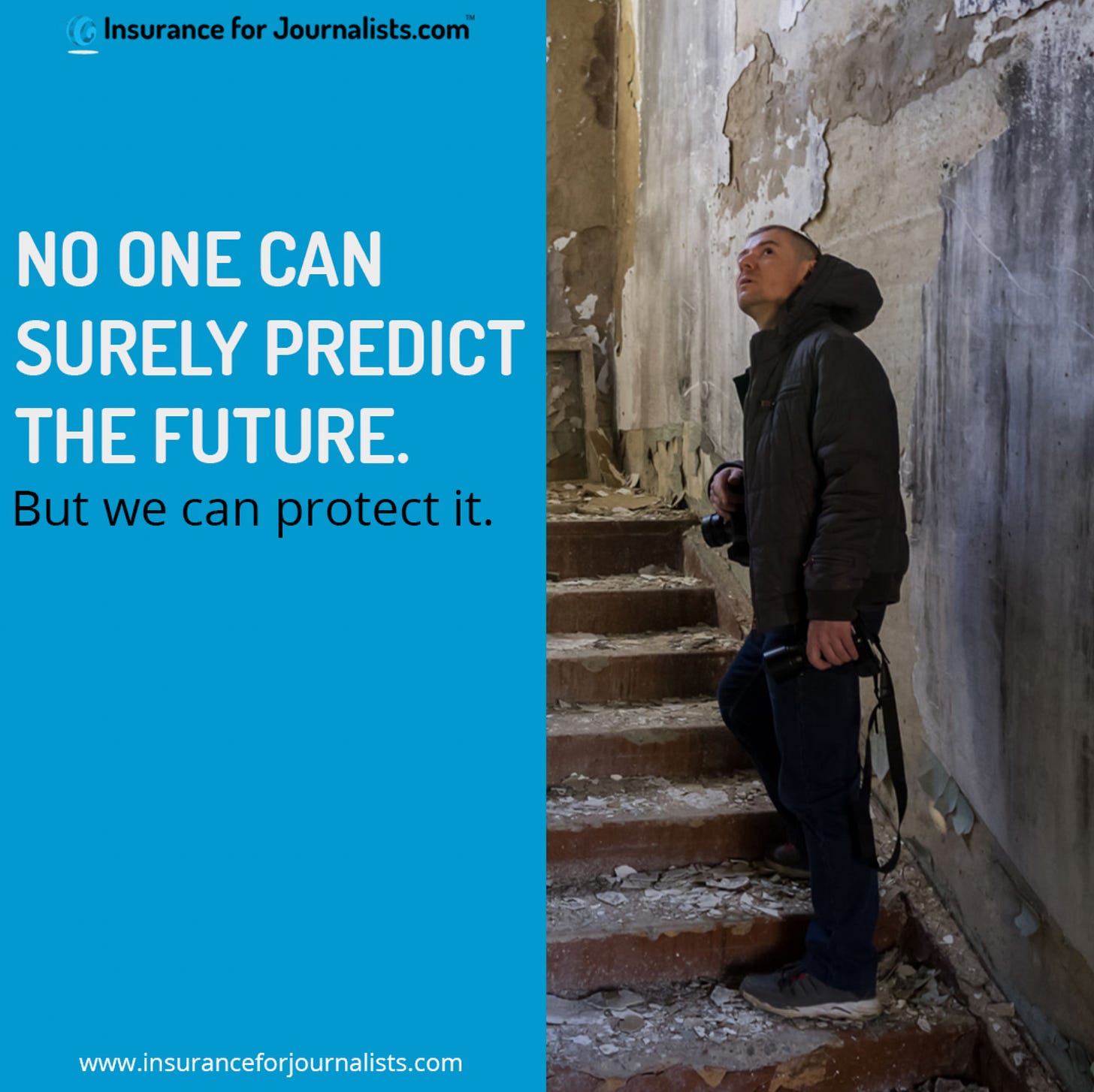Insurance for Journalists is the only insurance designed by journalists for journalists.
They cover all members of the media anywhere in the world, including areas of war (declared or undeclared), rebellion, civil war, and terrorism.
Coverage includes accidental death and disablement, sickness and accident medical bills, medical evacuation and repatriation to your home country*
Get a quote in seconds: https://insuranceforjournalists.com
We all know that as a freelancer, networking is essential for getting new work. In this week’s newsletter our FFJ podcast producer and freelance broadcast journalist Maddie Drury explains what she has learnt about having a ‘chat’ over a cup of coffee (or tea) whether it’s in real life or a virtual version.

I’ve never had a successful job application in journalism. Never. I applied to every grad scheme going in my final year of university and tried my luck at countless entry level jobs. But they were fruitless tasks. All of my freelancing work since has been the result of an initial Twitter DM, firing off an email, or through word of mouth. As an impatient chatterbox, that suits me down to the ground.
On some of those occasions, I’ve had a reply looking for a ‘chat’. Now a ‘chat’ is never just a ‘chat’. I’ve walked into situations like this before, wholly unprepared to present myself, and rattled through the conversation by the skin of my teeth. A ‘chat’ can range from an informal coffee to a job interview. Here’s how to master the coffee and give yourself the best chance of some work.
How to ask for a coffee
Typically I approach a) people whose work I admire, to pick their brains about their process and learn the tricks of their trade or b) someone at the top of a foodchain in an organisation I’m keen to get some work in. After finding the right email address or getting a follow back on Twitter, I construct a message with the aim of sitting down with this individual.
I generally include the following ingredients:
Introduce myself in a brief line: my name, current job roles, how I found their contact
A line about what I’d like to achieve with them: to learn more about x, to chat in the interests of freelance work
Outline what I admire about this person: a specific piece they wrote, the work culture, the publication’s reputation
Suggest a time and method of meeting: “Would you be available for a Zoom / in person coffee in the next two weeks to discuss? Let me know a time that suits you.”
The message is roughly three to four paragraphs long, fairly direct and full of flattery!
What to talk about
If the email leads to a conversation, it’s time to start thinking about how to get the most out of the opportunity. If it’s an informal chat with someone whose work I look up to, I go with a professional dilemma that requires a solution. This also ensures I’m not wasting the precious time of the person I’m speaking with.
The dilemma might be how to navigate a professional relationship, a technical skill I’d like to learn more about or brainstorming an idea. This helps frame the conversation, and utilises the sacrosanct minutes you both have.
I also find it valuable to hear about their career journey. How did they get to the point they’re at now? What steps did they take? Is there anything I can emulate to help me get to a similar spot?
If it’s a chat with someone who can potentially get me tangible work, I come prepared as if it were a job interview. Research the publication: what stories have they published recently? Who is their audience? How often do they publish?
Then I bring ideas. There might not be an opportunity to pitch in a formal sense, but if you feel the conversation heading that way, it’s a good opportunity to get feedback.
Arming yourself with a variety of questions about the work culture, what ideas they’re keen on (even if you sort of know the answer) shows enthusiasm.
Most importantly, this is a chance to let your personality shine in a way it never could on a piece of paper. Don’t be shy and listen attentively.

Following up
The follow up email. Here’s a final list of ingredients for this necessary and important chore:
Thank them!
Acknowledge the actions you will put into practice as a result of the chat, “I’ll definitely send an email to X, thanks for the pointers!”, “I watched the YouTube tutorial you recommended, it was so helpful”, “I have a meeting next week, I’ll make sure to speak up more using the method you suggested.”
Finishing on a brief reminder that you have a personality outside of the professional networking bubble, “I listened to the first episode of the podcast you recommended, superb. Hope to see you soon to chat about it more.”
Each conversation will take on a different level of formality, and it takes guts to approach someone out of the blue. Ultimately being a kind, diligent person can lead to work. And you might be able to avoid the faff of a long-winded job application too.
Don’t miss out
You have just two more days to take advantage of our Quick Guides sale which ends at the end of the month! Pick up our digital guides on pitching, finding work, branding and finances for just £3.50 each.
We are taking part in a Women in Journalism Agony Aunt session for freelancers with the brilliant Donna Ferguson and Heidi Spalding on July 4, 6pm. It will be an hour long Q&A where you will have the opportunity to get live feedback on freelance dilemmas. Come along and ask us about thorny subjects like getting paid, dealing with tricky editors and selling the same subject more than once.
Tickets are £7.50 for members of Women in Journalism and £15 for non-members.
Also its your last chance to give your feedback on this newsletter. What can we improve and what other features would you like to see? Complete this quick survey and be in with the chance of winning our complete set of freelancing guides.
New podcast series alert
This is not a drill, series 8 of the podcast is heading your way next week. We’ve mixed it up a little and made a Summer Reads Special. We’ve been talking to freelance-journalists-turned-authors about writing a wide variety of books including thriller fiction, non-fiction, cookery, memoir and ghostwriting. We ask questions about the mechanics of getting a book deal and just how you crank out 90,000 words.
More details to follow in next week’s newsletter but make sure you’re subscribed wherever you get your podcasts so you don’t miss an episode.
Triumph of the week
Recording a podcast episode with a true journalism hero of ours. Watch this space…
That feeling when
You think you are on top of it all and a ton of edits come back on a feature you filed weeks ago.
We love to hear your feedback on everything we do, so feel free to drop us an email anytime at freelancingforjournalists@gmail.com
Bye for now!







